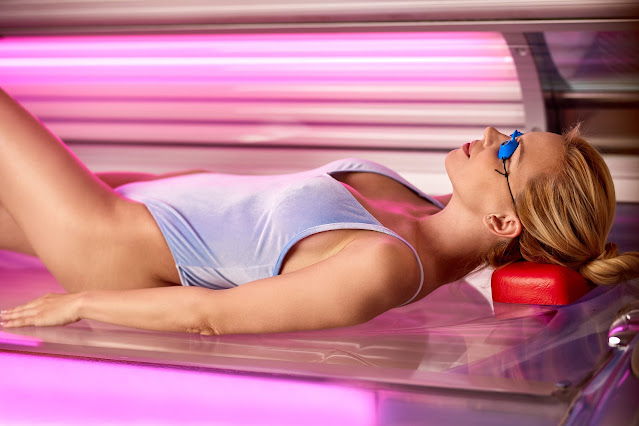What Increases Your Skin’s Sensitivity to Light and Heat Before Laser Skin Resurfacing?
Board-certified dermatologist Dr. Daniel Wasserman says: “Laser skin resurfacing is a popular cosmetic procedure that can help reduce the appearance of fine lines, wrinkles, scars, and other skin imperfections. However, to achieve the best results, it is essential to prepare your skin properly first. One critical factor that can affect the outcome of laser skin resurfacing is the sensitivity of your skin to light and heat. Furthermore, any cosmetic treatment that exfoliates the top or middle layers of skin—such as laser skin resurfacing—will cause photosensitivity.”
In this article, we'll discuss some things that can increase sensitivity to light and heat that you should avoid before laser skin resurfacing.
Sun Exposure
Dr. Wasserman explains: “Exposure to sunlight can increase the sensitivity of your skin to light and heat, making it more prone to damage during laser skin resurfacing. Therefore, it is crucial to avoid sun exposure for at least two weeks before the procedure.” This means avoiding outdoor activities during peak hours, wearing protective clothing, and using a broad-spectrum sunscreen with an SPF of 30 or higher.
Tanning
Tanning, whether through sunbathing or tanning beds, can also increase sensitivity to light and heat. It is recommended that you avoid tanning for at least four weeks before laser skin resurfacing. This includes using self-tanners, which can also increase skin sensitivity. If you recently got a tan or sunburn, you may not be able to get laser skin resurfacing and may need to postpone your appointment.
Certain Medications
Some medications can increase the sensitivity of your skin to light and heat, making it more prone to damage during laser skin resurfacing. These medications include antibiotics, anti-inflammatory drugs, and certain acne medications like Accutane. If you are taking any medications, you should inform your doctor before the procedure to determine if you need to stop taking them temporarily.
Certain Topical Products
There are skin products that contain certain ingredients that will make your skin more sensitive to sunlight, such as retinoids, glycolic acid, and benzoyl peroxide, along with skin brightening ingredients like vitamin C.
Chemical Peels
It is recommended that you avoid chemical peels for at least four weeks before the procedure. Dr. Wasserman says: “Chemical peels involve applying an acid solution to the skin to exfoliate the outer layer. This process can increase skin sensitivity to light and heat, making it more prone to damage during laser skin resurfacing.”
Waxing and Depilatory Creams
Waxing and depilatory creams can irritate the skin, making it more sensitive to light and heat. It is recommended that you avoid these hair removal methods for at least two weeks before the procedure.
Laser skin resurfacing can be an effective way to improve the appearance of your skin, but it is essential to prepare your skin properly before the procedure. Avoiding sun exposure, tanning, certain medications, chemical peels, waxing, and depilatory creams can help reduce skin sensitivity to light and heat, making it less prone to damage during the laser skin resurfacing process. To heal well and get optimal results, it’s also recommended that you quit smoking for several weeks prior to the procedure. Remember to consult with your dermatologist if you have any questions or concerns about preparing for laser skin resurfacing.
Ready to find out more about how to prepare for laser skin treatment? Contact Naples’ Skin Wellness Physicians for more advice about what you should avoid in the time leading up to the procedure. Call (239) 732-0044 or fill out a contact form to request a consultation to find out whether you are a good candidate for this type of cosmetic treatment.


Comments
Post a Comment